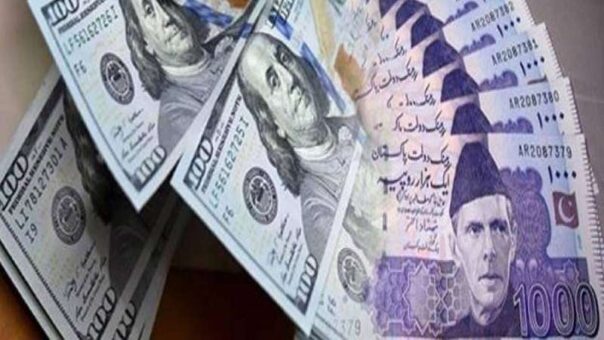Karachi, February 18, 2024 – The Pakistani Rupee (PKR) is expected to encounter increased pressure against the US dollar in the coming week, starting February 19, 2024, as the country grapples with heightened political turmoil.
Despite these challenges, currency experts express cautious optimism, pointing to the potential mitigating factors of improved export earnings and remittance inflows that could contribute to maintaining stability for the local currency against the greenback.
In the previous week, the rupee experienced minimal fluctuations in the interbank market, closing at 279.36 per dollar on Monday, compared to 279.33 on Friday. However, the upcoming week poses new challenges as Pakistan navigates its most significant political crisis in years. The controversy stems from a disputed election on February 8, 2024, triggering allegations of vote-rigging and subsequent protests by the opposition, led by former Prime Minister Imran Khan, currently in jail on corruption charges.
Imran Khan’s party, Pakistan Tehreek-e-Insaf (PTI), has called for a nationwide peaceful demonstration on Saturday, demanding a re-run of the polls, claiming they were manipulated to favor the Pakistan Muslim League-Nawaz (PML-N). The political uncertainty has not gone unnoticed internationally, with credit rating agency Moody’s signaling a “credit negative” outlook for Pakistan in the face of prolonged political instability and social unrest. Various think tanks have criticized Pakistan for its authoritative regime, further complicating potential engagements with international organizations like the International Monetary Fund (IMF).
The IMF’s willingness to engage with Pakistan is contingent on a stable, elected government, making the ongoing political situation a significant hurdle. This complicates discussions for the continuation of the current IMF program and the initiation of a new one. The uncertainty in political leadership raises questions about the country’s ability to meet its financial obligations, including the $1 billion repayment period approaching.
While the currency market currently appears to be under control, analysts refrain from making precise predictions due to the prevailing political uncertainty. Remittances from Pakistani citizens working abroad provided a temporary relief, totaling $2.4 billion in January, reflecting a 26.2% increase compared to the same month last year. However, the overall trend in remittances for the first seven months of the fiscal year 2023/2024 reveals a 3% decline, amounting to $15.832 billion from July to January, compared to the corresponding period in the previous year.
The impact of IMF negotiations and inflows from bilateral and multilateral partners is expected to be felt after March, adding another layer of complexity to the economic outlook. Notably, interbank forex markets have witnessed a lackluster performance in recent days, with financial institutions displaying reluctance to take new or longer-term positions, reflecting an overarching cautious sentiment prevailing in the financial sector.
As Pakistan faces a critical juncture in its political landscape, the economic ramifications remain uncertain. The coming weeks will be pivotal in determining the resilience of the rupee against external pressures, as the nation grapples with both domestic political challenges and the need for stability in the international financial arena.
